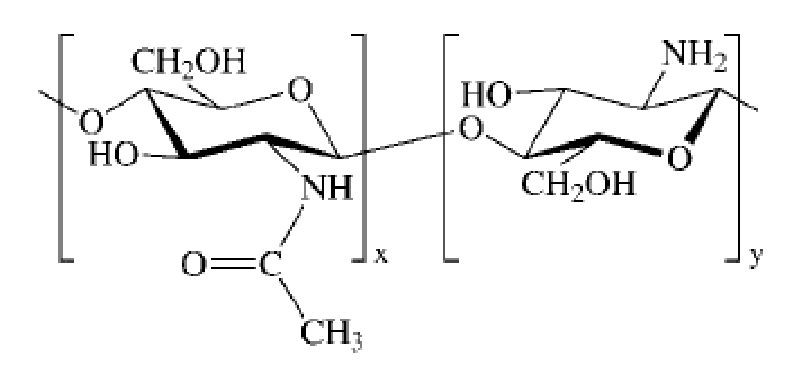Chitosan is commercially produced from chitin by alkali deacetylation. It is biocompatible, biodegradable and non-toxic, so that it can be used in medical applications such as antimicrobial and wound healing biomaterials. It also used as chelating agent due to its ability to bind with cholesterol, fats, proteins and metal ions.
Chitosan possesses antibacterial and antifungal properties and has been extensively studied as a potential natural antimicrobial agent in the pharmaceutical, cosmetic, agricultural, and food industries. The antimicrobial properties of chitosan are affected by molecular weight, degree of acetylation, and pH.
The haemostatic activity of chitosan can also be related to the presence of positive charges on chitosan backbone. Due to its positive charges, chitosan can also interact with the negative part of cells membrane, which can lead to reorganization and an opening of the tight junction proteins, explaining the permeation enhancing property of this polysaccharide.
Due to chitosan’s many attractive properties such as biodegradability, natural origin, abundance, reactivity, etc., it has many areas of application including medical, agricultural, food processing, nutritional enhancement, cosmetics, and waste and water treatment.
Chemical structure chitosan
